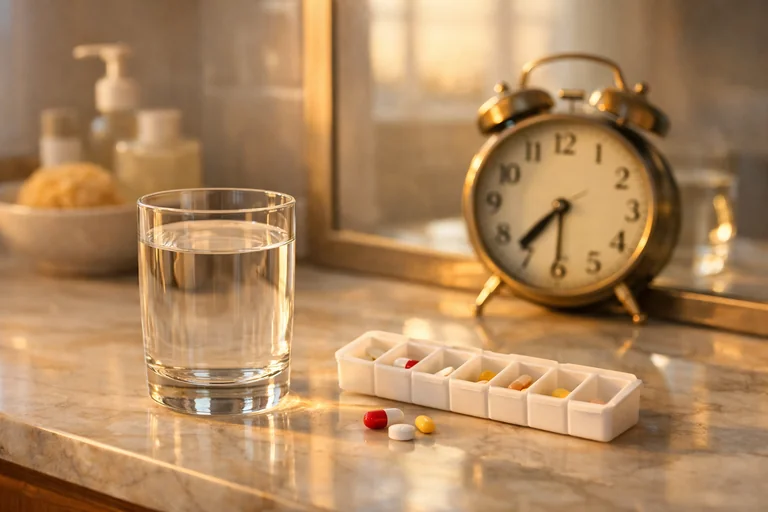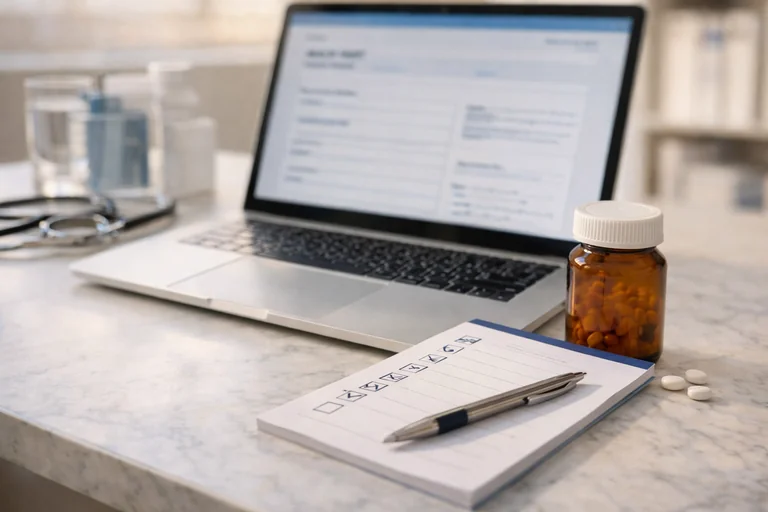A 2 minute assessment to get a personalized mental health or alcohol recovery plan.
One worry that many people have when considering doing ketamine therapy at home is what happens if they experience a bad trip. In psychedelic therapy a “bad trip” is when a person has a mental altercation that can cause them to lose touch with reality or experience disturbing emotions. It turns out when psychedelics are used for therapy this response can actually be a very good thing. It has also been discovered that when the "bad" experience is managed it can turn into a positive and productive experience rather than an overwhelming one.
Let’s take a closer look at the science behind "bad trips".
What is a “Bad Trip” in Psychedelic Therapy?
What’s dubbed a “bad trip” isn’t clear cut. Generally speaking, a bad trip is one in which the person experiences sensory overload, vivid hallucinations and deep thoughts that are challenging to deal with in the moment. It’s a powerful trip that takes the person out of reality and into a negative space.
Of course, what’s considered a “bad trip” is subjective. It’s different for each person, and a lot of things affect how a person reacts to psychedelic therapy. For example, if a person has done psychedelics in the past they may be better prepared for the experience and can ease into in a way that prevents them from having a "bad trip".
Why Doctors Believe Bad Trips Are a Good Thing
At first glance, you’d assume that a “bad trip” isn’t good for the therapeutic experience. It’s an assumption that has been proven wrong.
The clinical research on psychedelic therapy is quite expansive and is growing larger every day. Some of the latest studies analyze why some people have more profound improvements than others after a ketamine treatment compared to other types of psychedelic therapy.
Essentially, the more “mystical” or hallucinogenic the experience is, the better the results tend to be. A 2017 study noted one possible reason for this. The researchers concluded:
“Mystical experience may have a relationship to psychedelic therapy outcome as some studies have indicated an application of the former may result in ‘abrupt, substantial, and sustained changes in behavior and perception.”
There are now studies looking deeper into this aspect of psychedelic therapy to verify if this is the case and if there are other factors connected between how powerful a trip is and the therapeutic outcomes.
A recently published study set out to measure the connection between the strength of the psychedelic experience and mental health improvements. The study examined the various effects psychedelics had on 985 people. The participants fell into one of three groups based on how mystical, challenging and psychologically insightful participants felt the experience was.
- High Scoring Group - Experience was strongly mystical and insightful, moderately challenging.
- Low Scoring Group - Experience had low to moderate levels of being mystical, challenging and insightful.
- Positive Scoring Group - Experience was strongly mystical and insightful but not very challenging.
A mystical experience is one that evokes awareness while time and space seems to dissolve away. People have a hard time putting the mystical aspect into words, but it generates positive feelings.
Psychological insight was defined as an experience that provides insight into thoughts, ideas, emotions, memories, beliefs, feelings and behaviors.
An experience classified as challenging was one that brought up disturbing, distressing or negative emotions.
So which group benefited the most from psychedelics? Depression and anxiety levels were measured before and after the psychedelics were used. Those measurements suggest that the Positive Scoring group had the greatest benefits followed closely behind the High Scoring group. This proved having a “bad trip” could be very beneficial. In fact, based on the findings it appears that a strong experience of any sort is more therapeutically beneficial than having low to moderate experiences.
Another finding was that challenging trips may be dose related. The participants that had the most challenging experiences had higher doses on average.
Ways to Make Sure a Powerful Trip is Beneficial
One of the goals with all of the recent research is to find ways to minimize any negative experiences of a powerful trip without reducing the benefits. Careful analysis is revealing there are ways to help patients avoid having a bad trip.
Relax as Much as Possible
A clear observation has been that the more a person resists and doesn’t give in to the experience, the worse it feels. Before a psychedelic treatment take 5-10 minutes to unwind and take a moment for yourself. Do whatever it is that relaxes you the most so that you’re in the right state of mind.
Create a Comfortable Environment
When the environment you’re in is calm and quiet it’s a lot easier to relax. Check out these tips on how to make your living space comfortable for at-home ketamine treatments.
Have a Treatment Guide With You
One thing that can make a hugely positive difference on the experience of the treatment and outcomes is having a treatment guide. This is a person who is trained to help patients administer psychedelic medications at home and ensure they are comfortable throughout the treatment. They can also help patients transition out of the psychedelic experience and guide integration practices right after.
Start With a Low Dose
The dose can have an impact on the experience. Our clinicians always start with a very low dose to get patients in the Positive Scoring group. Starting low allows the clinician to make adjustments safely and find the optimal dosage.
If you’re interested in learning about at-home ketamine therapy with the potential to ease treatment-resistant depression, anxiety, PTSD and more Choose Your Horizon can help.
).avif)



